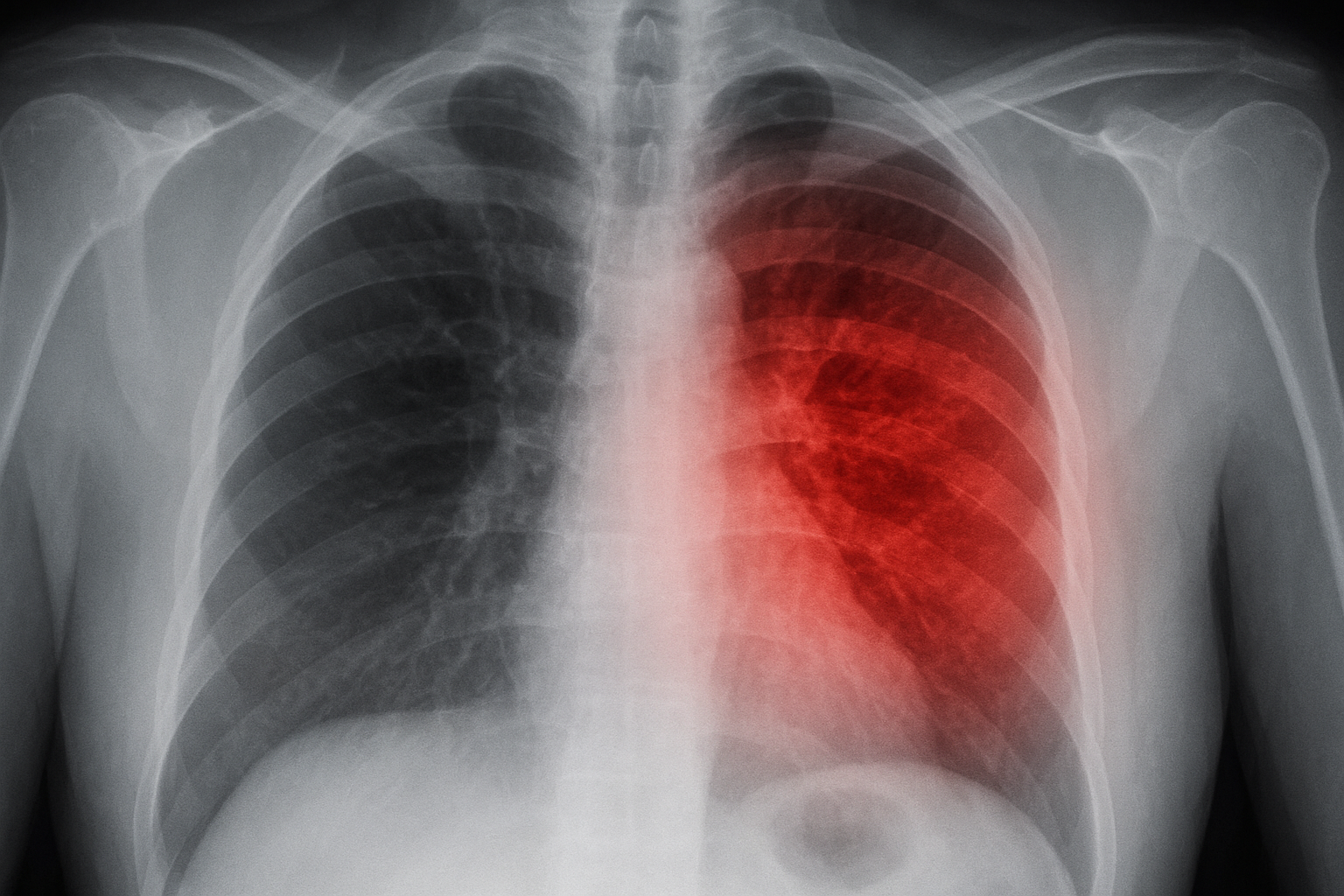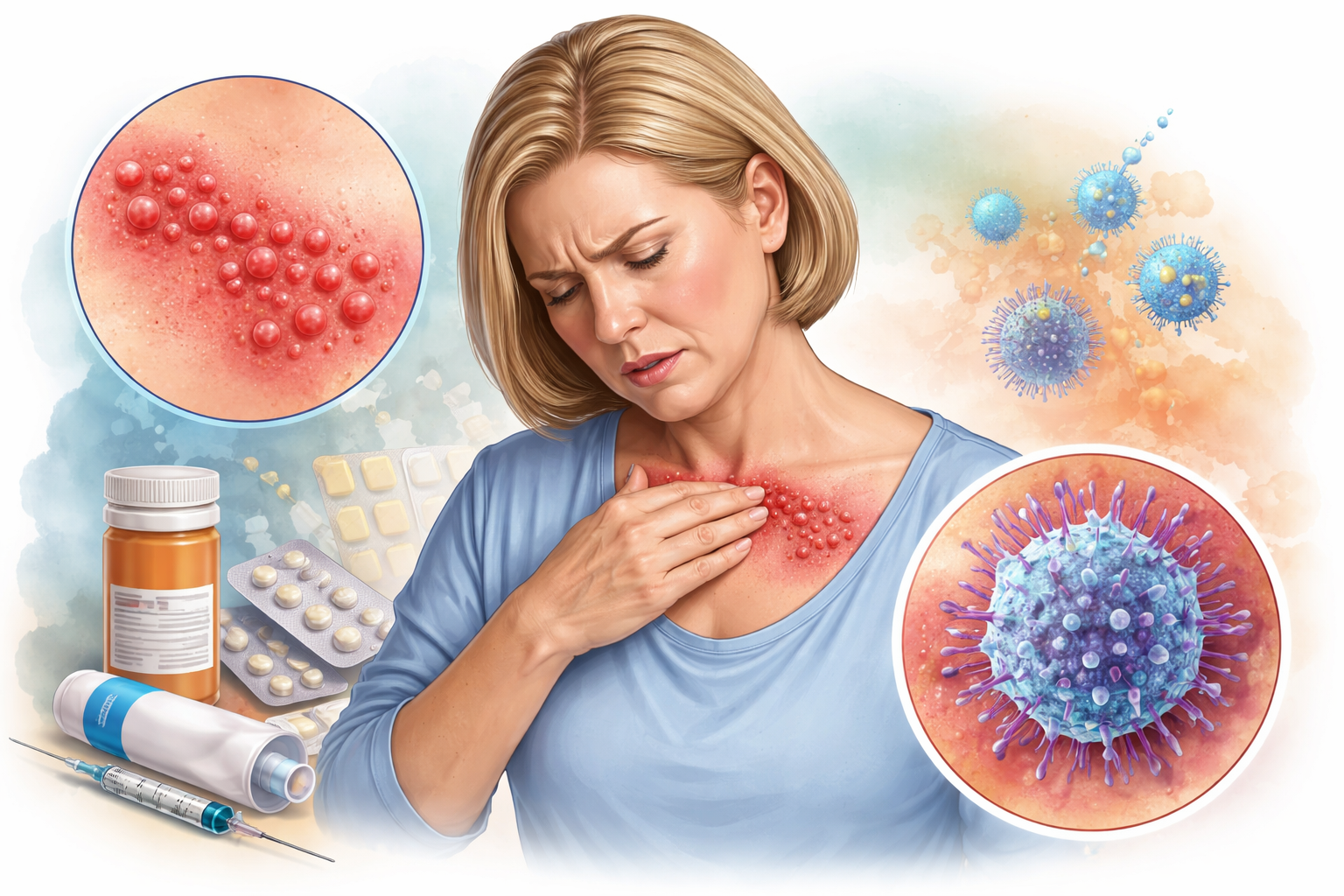Enteric fever, commonly known as typhoid fever, is a potentially serious bacterial infection caused primarily by Salmonella enterica serotype Typhi and, less commonly, Salmonella Paratyphi. It spreads through contaminated food and water, especially in areas with poor sanitation.
This disease remains a major public health concern in developing countries, including parts of South Asia, Africa, and Latin America. Prompt diagnosis and treatment are crucial to avoid complications.
Causes and Risk Factors
Enteric fever is transmitted via the fecal-oral route, meaning it spreads when a person consumes food or water contaminated with the feces of an infected person.
Major Risk Factors:
- Drinking unsafe water
- Eating food from street vendors or unhygienic sources
- Poor sanitation and hygiene practices
- Traveling to endemic areas without vaccination
Signs and Symptoms
Symptoms of enteric fever generally appear 6 to 30 days after exposure and can vary in severity.
Common Symptoms:
- Persistent high fever (up to 104°F or 40°C)
- Weakness and fatigue
- Headache
- Abdominal pain and discomfort
- Constipation or diarrhea
- Loss of appetite
- Rose-colored spots on the abdomen or chest
Without treatment, the disease can cause serious complications like intestinal perforation, internal bleeding, and even death.
Diagnosis
Early diagnosis of enteric fever is critical. A healthcare provider may recommend the following tests:
- Blood culture: Most reliable during the first week of illness
- Stool and urine culture
- Widal test: Detects antibodies but may produce false positives
- Bone marrow culture: Highly accurate but rarely done due to complexity
Treatment Options
1. Antibiotics
Prompt antibiotic therapy can shorten the duration of illness and reduce complications. Commonly used antibiotics include:
- Azithromycin
- Ceftriaxone
- Ciprofloxacin (in some regions, resistance has been reported)
2. Supportive Care
- Adequate hydration
- Proper nutrition
- Rest
Note: Avoid self-medication, especially in suspected or confirmed cases of drug-resistant typhoid.
Prevention
1. Vaccination
Vaccines are available and recommended for travelers to high-risk areas. These include:
- Injectable Vi capsular polysaccharide vaccine
- Oral live attenuated vaccine (Ty21a)
2. Hygiene and Sanitation
- Drink boiled or bottled water
- Avoid raw fruits and vegetables unless peeled
- Practice proper hand hygiene
- Eat only well-cooked food
Typhoid in Developing Countries
Enteric fever continues to be a major public health issue in low-resource settings due to:
- Limited access to clean water
- Inadequate sanitation
- Antibiotic resistance
Public health efforts, including vaccination campaigns, safe water supply, and hygiene education, are key to reducing its prevalence.
Final Thoughts
Enteric fever is preventable and treatable but can be life-threatening if ignored. Early medical attention, safe food and water practices, and vaccination are the best ways to protect yourself and your loved ones.



